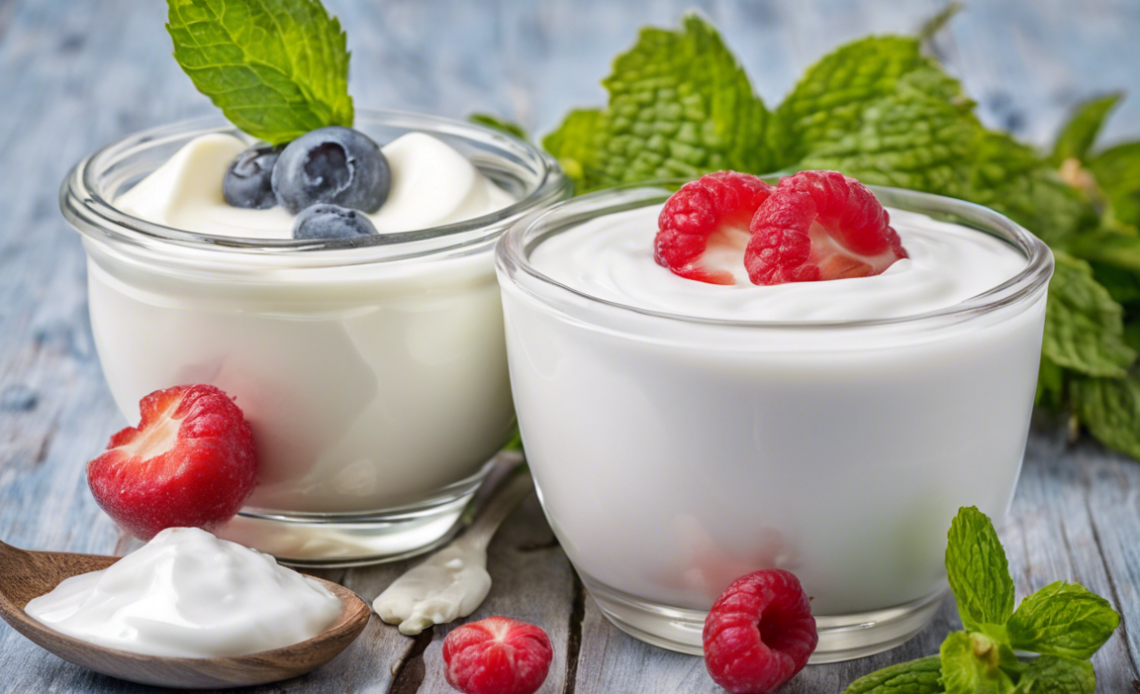
When it comes to dairy products, yogurt and curd are two popular options that are often confused with each other. While they may seem similar, there are some key differences between the two. In this article, we will explore the differences between yogurt and curd, including their ingredients, nutritional values, health benefits, and culinary uses.
Ingredients
Yogurt is typically made by fermenting milk with the addition of specific live bacteria cultures, such as Lactobacillus bulgaricus and Streptococcus thermophilus. This fermentation process gives yogurt its creamy texture and distinct tangy flavor. On the other hand, curd refers to coagulated milk solids that are obtained by curdling boiled milk with an acidic substance like lemon juice or vinegar. The curdling process separates the solid curd from the watery whey.
Nutritional Values
Both yogurt and curd are rich in essential nutrients such as protein, calcium, vitamin D, and probiotics. However, the nutritional content may vary slightly between the two. Yogurt is often lower in fat and calories compared to curd, making it a popular choice for those looking to manage their weight. Additionally, yogurt tends to have a higher probiotic content, which can be beneficial for digestive health.
Health Benefits
Both yogurt and curd offer numerous health benefits due to their rich nutrient profiles. The probiotics found in yogurt and curd promote a healthy gut by balancing the intestinal flora and improving digestion. Regular consumption of yogurt and curd can also help boost immunity, strengthen bones, and support weight loss. The calcium in these dairy products is essential for bone health, while the protein aids in muscle repair and growth.
Culinary Uses
Yogurt and curd are versatile ingredients that can be used in a variety of culinary preparations. Yogurt is commonly used in smoothies, salad dressings, marinades, and baked goods due to its creamy texture and mild flavor. On the other hand, curd is a key ingredient in Indian cuisine, where it is used to make curries, dips, raita, and desserts. Curd can also be strained to make hung curd, which is thicker and creamier in consistency.
FAQs (Frequently Asked Questions)
1. Can yogurt be used as a substitute for curd in recipes?
Yes, yogurt can be used as a substitute for curd in most recipes. However, keep in mind that yogurt has a slightly different flavor and texture compared to curd, so the end result may vary.
2. Is curd better than yogurt for digestion?
Both curd and yogurt are good for digestion due to their probiotic content. However, some people find that curd is easier to digest than yogurt, especially if they are lactose intolerant.
3. Can yogurt and curd be consumed by people with lactose intolerance?
Yes, yogurt and curd are often better tolerated by individuals with lactose intolerance compared to regular milk. The probiotics in these dairy products can help break down lactose and aid in digestion.
4. Which one is more popular globally, yogurt or curd?
Yogurt is more popular globally than curd, particularly in Western countries where it is consumed as a standalone snack or breakfast item. Curd is more commonly consumed in South Asian and Middle Eastern cuisines.
5. Are there any non-dairy alternatives to yogurt and curd?
Yes, there are non-dairy alternatives to yogurt and curd available in the market, such as coconut yogurt, almond yogurt, and soy curd. These alternatives are suitable for individuals following a plant-based or vegan diet.
In conclusion, while yogurt and curd share some similarities, they are distinct dairy products with their own unique characteristics. Whether you prefer the creamy texture of yogurt or the tangy flavor of curd, both options offer nutritional benefits and can be enjoyed in a variety of culinary creations. Experiment with these dairy products in your cooking and baking to discover which one suits your taste and dietary preferences best.

